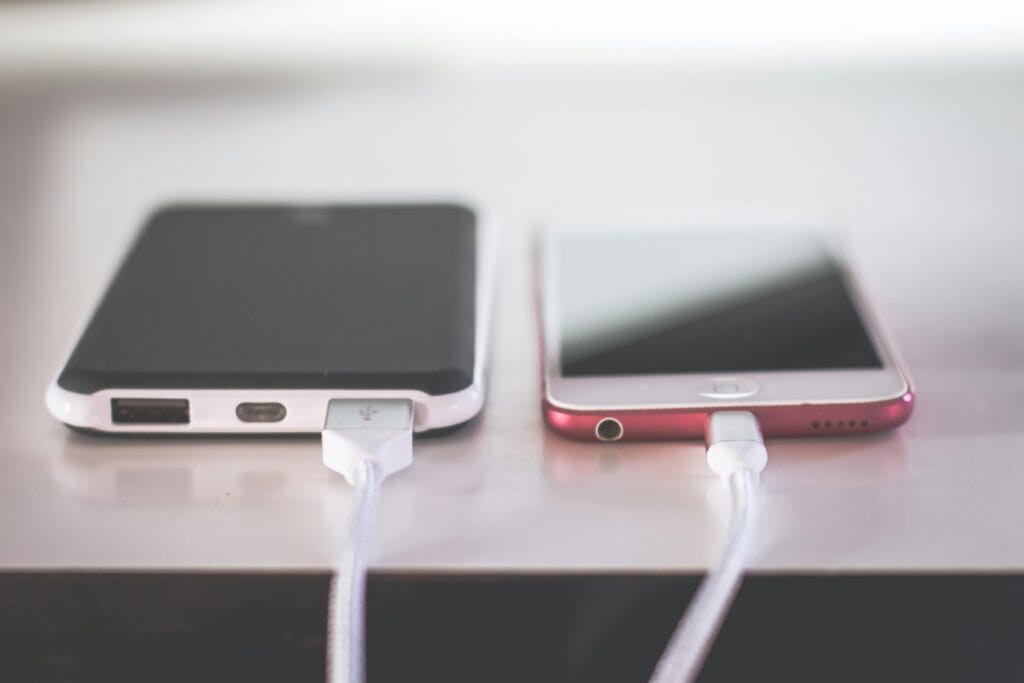Lithium-ion batteries power more aspects of our everyday lives than ever before in today’s technologically advanced society. These small, rechargeable batteries are nearly always included in laptops and cellphones to e-bikes, power tools, and residential energy storage systems. However, a concerning issue has coincided with their widespread use: a notable increase in lithium-ion battery fire incidents, causing fatalities, major injuries, and property damage.
Protecting your family, your belongings, and your home insurance coverage begins by understanding the causes of lithium-ion battery fires and how to prevent them. With insights from the National Fire Protection Association, let’s explore why these fires are becoming more common and what can be done to safeguard your home and loved ones.
Why Are Lithium-Ion Battery Fires Increasing?
While being extremely efficient, lithium-ion batteries also have a large energy storage capacity in a small package. A battery may short-circuit and overheat if it is damaged, not charged correctly, exposed to high temperatures, or has manufacturing flaws. This process is referred to as thermal runaway, and it can result in an explosion or a rapidly expanding fire.
Several factors contribute to this increase in lithium-ion battery fires:
An increase in battery-powered devices: The average household now owns dozens of items powered by lithium-ion batteries. More devices mean more chances for improper charging, poor storage, or damage.
Cheap or counterfeit products: Off-brand or counterfeit chargers and batteries often lack safety features found in certified products, making them far more likely to fail.
Improper charging practices: Charging devices overnight, using incompatible chargers, or placing batteries near flammable materials all increase fire risks.
Improper disposal: Tossing used batteries in household trash instead of recycling facilities can cause fires in garbage trucks or landfills.
Impacts on Home Insurance
Large-scale damage can result from a lithium-ion battery fire, and insurance companies frequently pay for associated losses. Your insurance may have grounds to reject your claim if the fire was brought on by carelessness, such as using an uncertified device, disregarding manufacturer warnings, or using a defective battery.
Repeated battery-related fire accidents or claims may potentially result in higher premiums or, in certain situations, the complete termination of your coverage. Furthermore, you might be held personally accountable if the fire damages a neighboring house and extends outside of your property, especially if it turns out that negligence was a contributing factor.
Insurance companies are becoming more aware of the fire hazards associated with batteries. Homeowners who take preventative measures may lessen the likelihood of a disaster and pose less of a risk to insurers.
Protecting Your Home and Staying Safe
Fortunately, there are simple, effective steps you can take to reduce the risk of lithium-ion battery fires in your home:
- Purchase from reputable brands
Buy your devices, batteries, and chargers from reputable manufacturers
Look for clear labeling and product information that confirms compliance with safety guidelines - Charge safely
Never leave your charging batteries unattended or plugged in overnight
Avoid charging your devices on soft surfaces like beds or couches, which can trap heat
Don’t use chargers that are not specifically designed for your device - Inspect regularly
Check your batteries and devices for swelling, overheating, leakage, or unusual smells. If anything seems off, stop using the battery immediately
Avoid using batteries or devices that have been dropped or physically damaged, as internal components may be compromised - Store safely
Use fire-resistant containers or battery storage cases to keep your loose batteries organized and reduce the risk of accidental short-circuiting
Avoid storing your batteries in drawers or containers where they can come into contact with keys, coins, or other metal objects that could trigger a short circuit - Dispose responsibly
Research some local recycling programs or hazardous waste facilities to ensure you’re disposing of batteries in accordance with community guidelines and environmental regulations
Store your used or dead batteries in a non-metal, fire-safe container until you can take them to a designated recycling drop-off site - Know what to do in an emergency
If a battery starts smoking or sparking, evacuate the area immediately and call 911. Avoid using water, as it can worsen lithium battery fires
Have a fire extinguisher rated for electrical or lithium fires (Class D or ABC) readily accessible in your home, and make sure everyone in your household knows how to use it safely
While lithium-ion batteries offer convenience and efficiency, they also come with real risks if not handled properly. With lithium-ion battery fire incidents on the rise, homeowners must be proactive about safety. By following basic precautions and staying informed, you can dramatically reduce the risk of fire in your home.
At the same time, finding the right home insurance provider will add another layer of protection to your property and peace of mind. To find the right provider for you, reach out to the Feltner Group. We help you compare coverage options, understand your risks, and choose a policy that fits your needs, so you’re protected before the unexpected happens.
